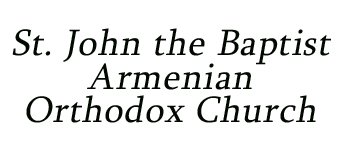THE ECUMENICAL COUNCIL OF NICAEA
September 9, 2023
It was quite an auspicious gathering, called to convene by Emperor Constantine the Great upon the recommendation of church leaders. Constantine invited 1,800 bishops of the Christian Church within the vast Roman Empire. The number attending (counted by three attendees) varies, but the number 318 has come to be the agreed official number of delegates. Since each delegate could bring with him two priests and three deacons, the total attendance was actually more. A number of controversial topics were discussed including the Arian question, the date of Easter, organization and structure of the church, the question of kneeling, to mention a few. Perhaps the most important result was the formulation of a Creed—a declaration and summary of the Christian faith. It is this event—the First Ecumenical Council—that we celebrate this Saturday, September 3, that took place in Nicaea in the year 325.
Aristakes, son of Gregory the Illuminator, represented the Armenian Church. The Council is mentioned in the writings of Moses of Khoren and Agathangelos. In later centuries, in all their doctrinal writings, the Fathers of the Armenian Church refer to the Council of Nicaea with reverence, and the Nicene Creed (Havadamk) was incorporated into the Armenian Liturgy. The Council condemned Arianism, a doctrine that denied the full divinity of Christ, and proclaimed that the orthodox position is the belief in “one Lord Jesus Christ, the Son of God, begotten of God the Father, Only Begotten, that is of the substance of the Father. God from God, light from light, true God from true God, begotten and not made” (from the Nicene Creed recited during the Armenian Divine Liturgy).
Prior to the Council’s conclusion, the delegates celebrated the 20th anniversary of Emperor Constantine, who in his closing remarks spoke of his aversion to dogmatic controversy and his desire for the Church to live in harmony, peace, and unity.


